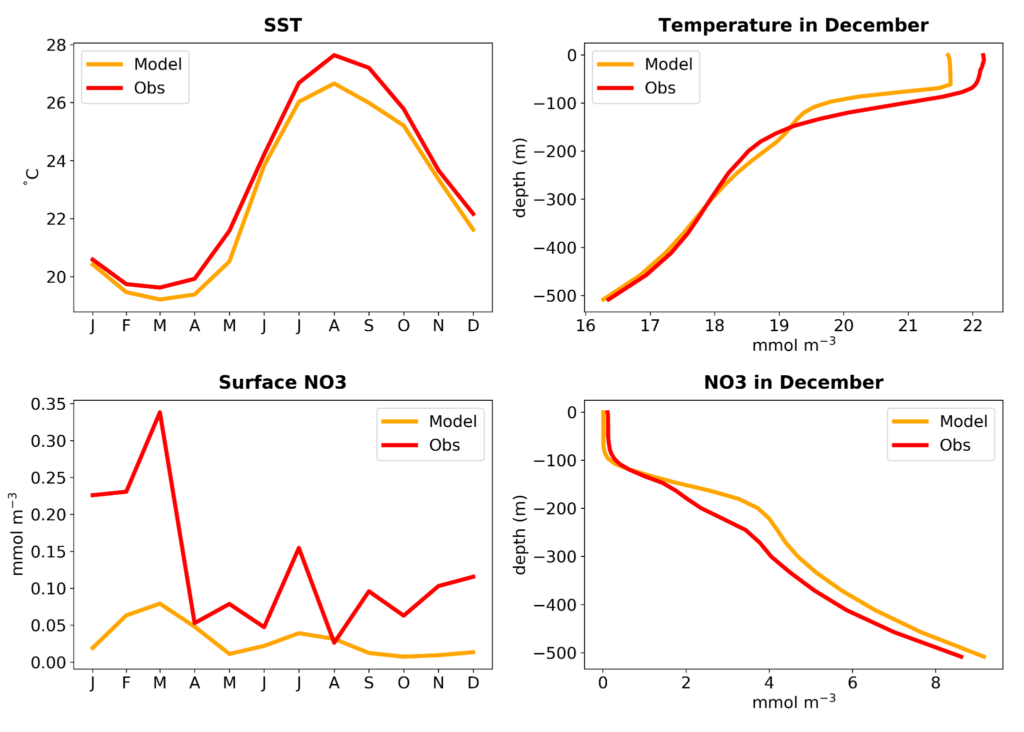
In order to help users get started with NEMO, below are a collection of step-by-step tutorials that demonstrate how to run various NEMO reference configurations and test cases. The NEMO Zoo is designed to gather available and appropriate training material, the authors are all volunteers and the NEMO System Team does not take responsibility for updates. Please note that these demonstrators are specifically designed for the noted release and so if you would like to test the instructions with another version of NEMO, some adaptation will likely be necessary.
Demonstrators for NEMO v5.0.1
AGRIF (Adaptive Grid Refinement In Fortran) is a library that allows the seamless space and time refinement over rectangular regions in NEMO. This demonstrator explores the AGRIF nested zoom capability including defining a nesting hierarchy, creating the domain configuration files using the DOMAINcfg tool, and running a test experiment.
Authors: Renata Tatsch Eidt and Francesco Tucciarone
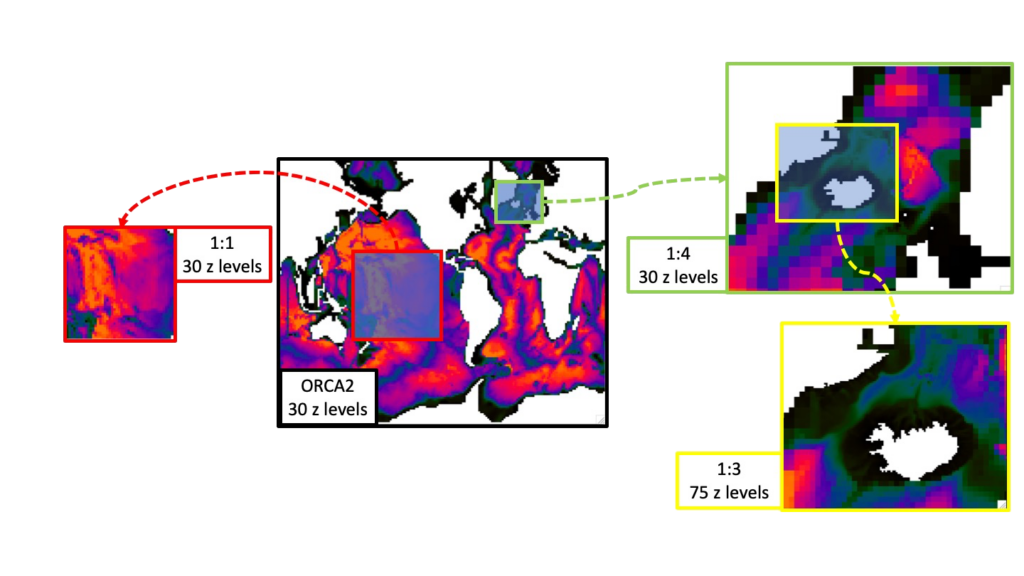
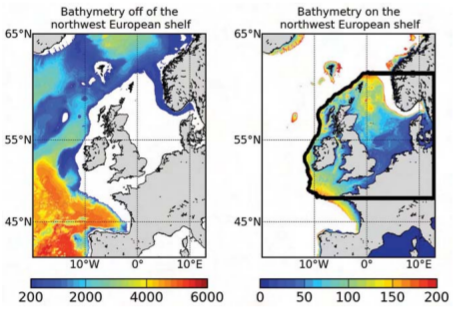
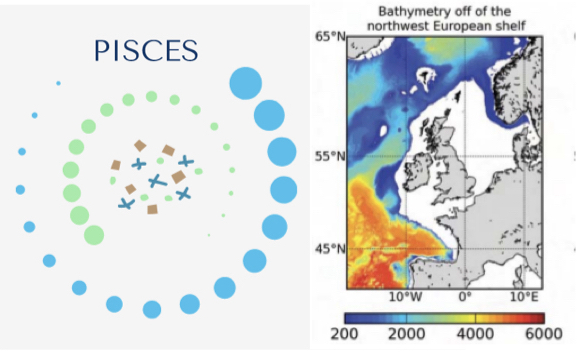
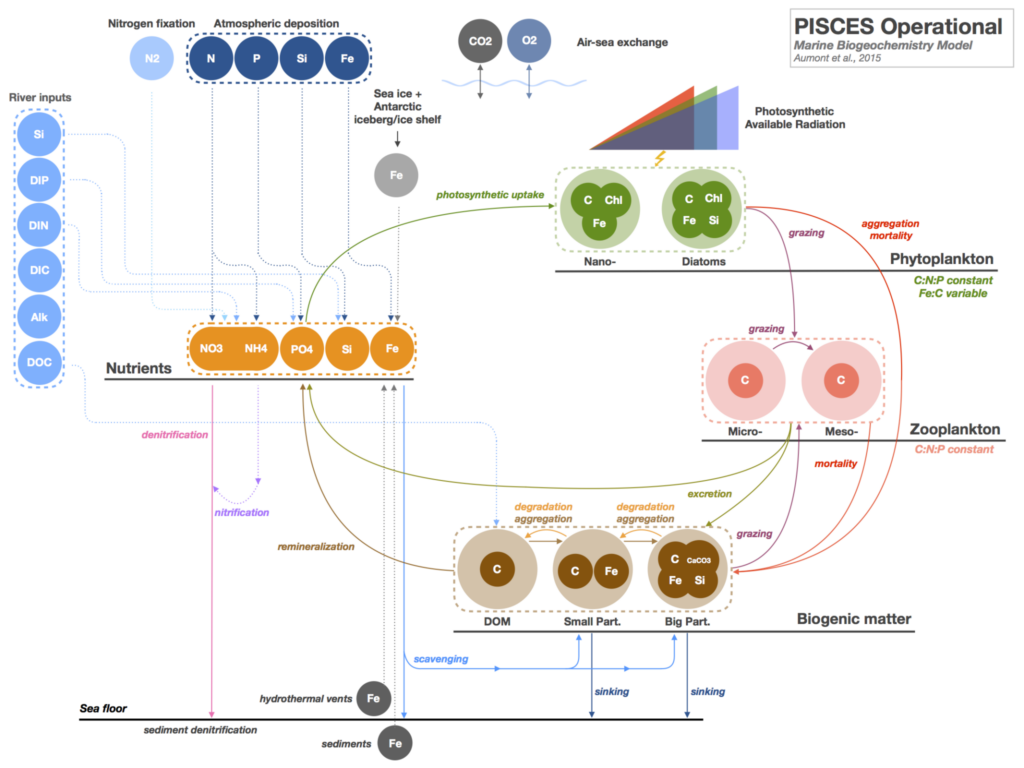
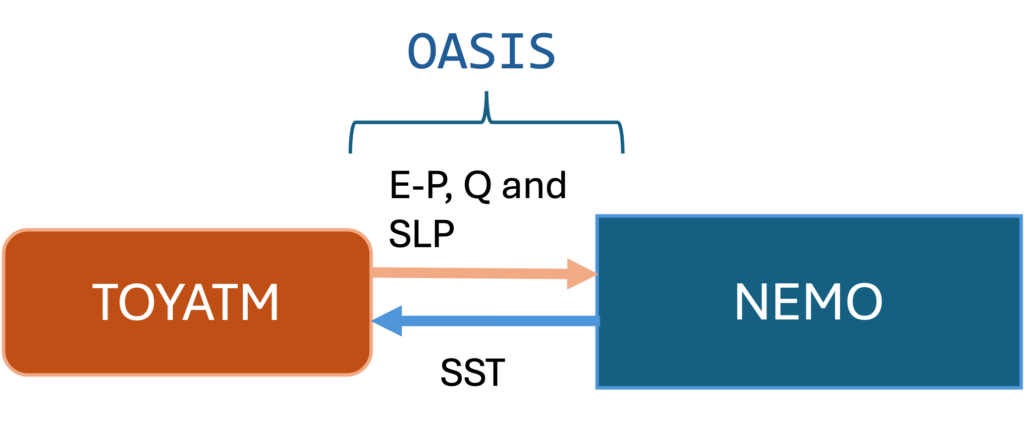
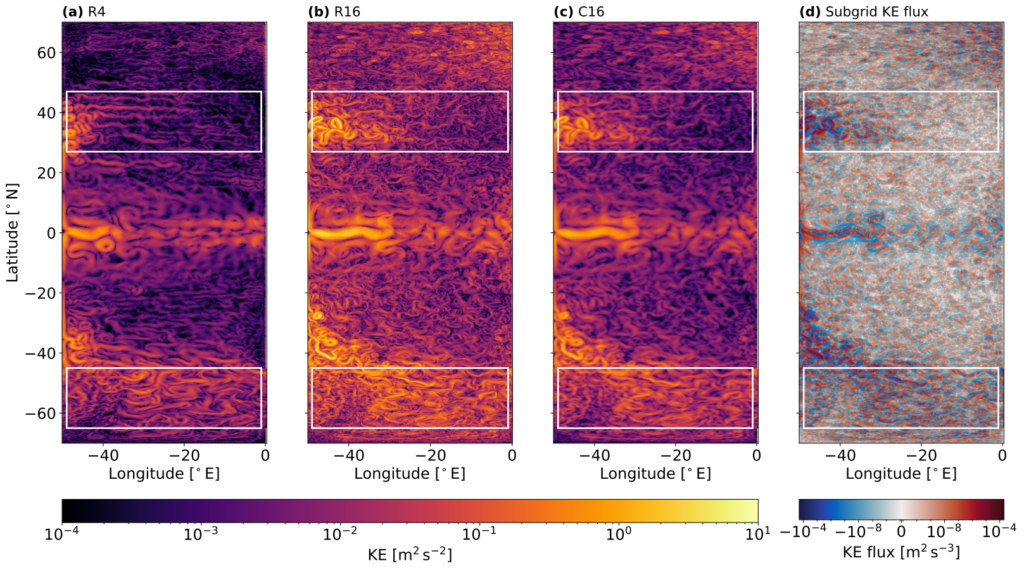
This demonstrator is designed to test mesoscale eddy parameterizations in the GYRE configuration which simulates the seasonal cycle of a double-gyre box model. GYRE is designed to represent an idealized North Atlantic or North Pacific basin. It consists in an idealized rectangular domain, rotated by 45°, over which an analytical seasonal forcing is applied
Author: Romain Torres
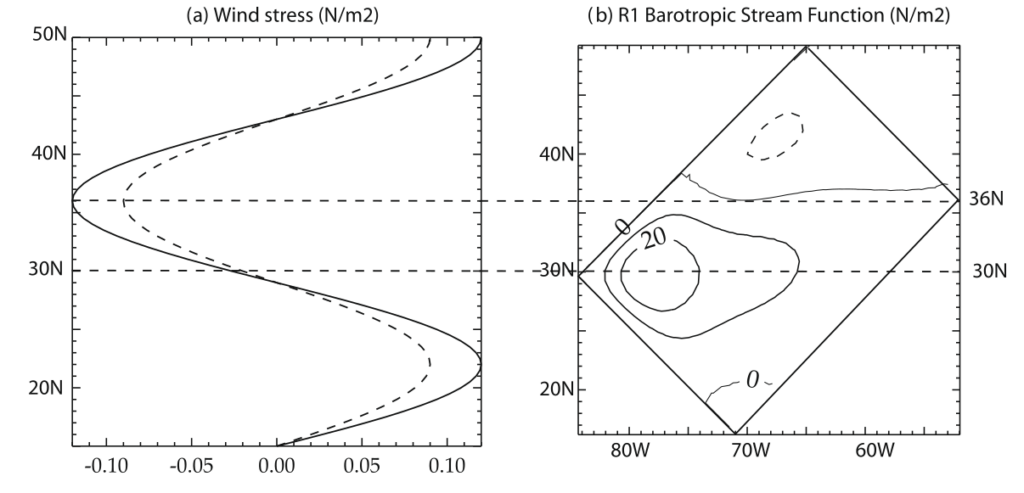
This tutorial runs a hybrid experiment of the ORCA2_ICE_PISCES configuration (for NEMO version v5.0) with a python machine learning deployed.
Author: Alexis Barge

This demonstrator is a use case for the NEMO ocean model based on the default configuration ORCA2_ICE_PISCES (global ocean 2° configuration). This tutorial describes how to set-up and run the default configuration as well as selected adjustments to customize the simulation to create a Paleo Earth set-up for the early Eocene.
Authors: Andrea Rochner, Francesco Cocetta and JB Ladant
This NEMO demonstrator shows how to create a 1-layer baroptropic storm surge model using the AMM12 regional configuration. The instructions can be adapted to any region of the ocean by changing the bathymetry, coordinates, initial conditions and forcing files.
Authors: Oliver Tooth and Nicolas Gonzalez

This configuration is based on the GYRE_PISCES reference setup and provides a controlled framework for testing turbulent vertical mixing schemes under tropical cyclone (TC) wind forcing. This demonstrator explores the sensitivity of physical and biogeochemical ocean responses to idealized TC wind fields, different vertical mixing parameterizations, and varying grid resolutions.
Author: John Karagiorgos

WED025 for intermediate levels
This demonstrator provides an update on how to set-up the reference configuration WED025 in NEMO v5.0.1 and explains how to activate icebergs and modify a routine in the code
Author: Birte Gülk

Demonstrators for NEMO v4.2
This is a worked example of a 1/4° configuration of the Weddell Sea that demonstrates how one can play with minimum ice shelf draft, water column thickness timestep and output frequency. There are also python scripts provided to assist in plotting example outputs.
Authors: Pierre Mathiot and Katherine Hutchinson

This is a demonstration guide of the PISCES marine biogeochemistry model using a 1D configuration describing the various steps required to install and run the code at the BATS station. The instructions given here can be adapted to different ocean stations by changing the bathymetry, station coordinates, initial conditions and forcing files.
Authors: Christian Éthé, Renaud Person and Olivier Aumont
